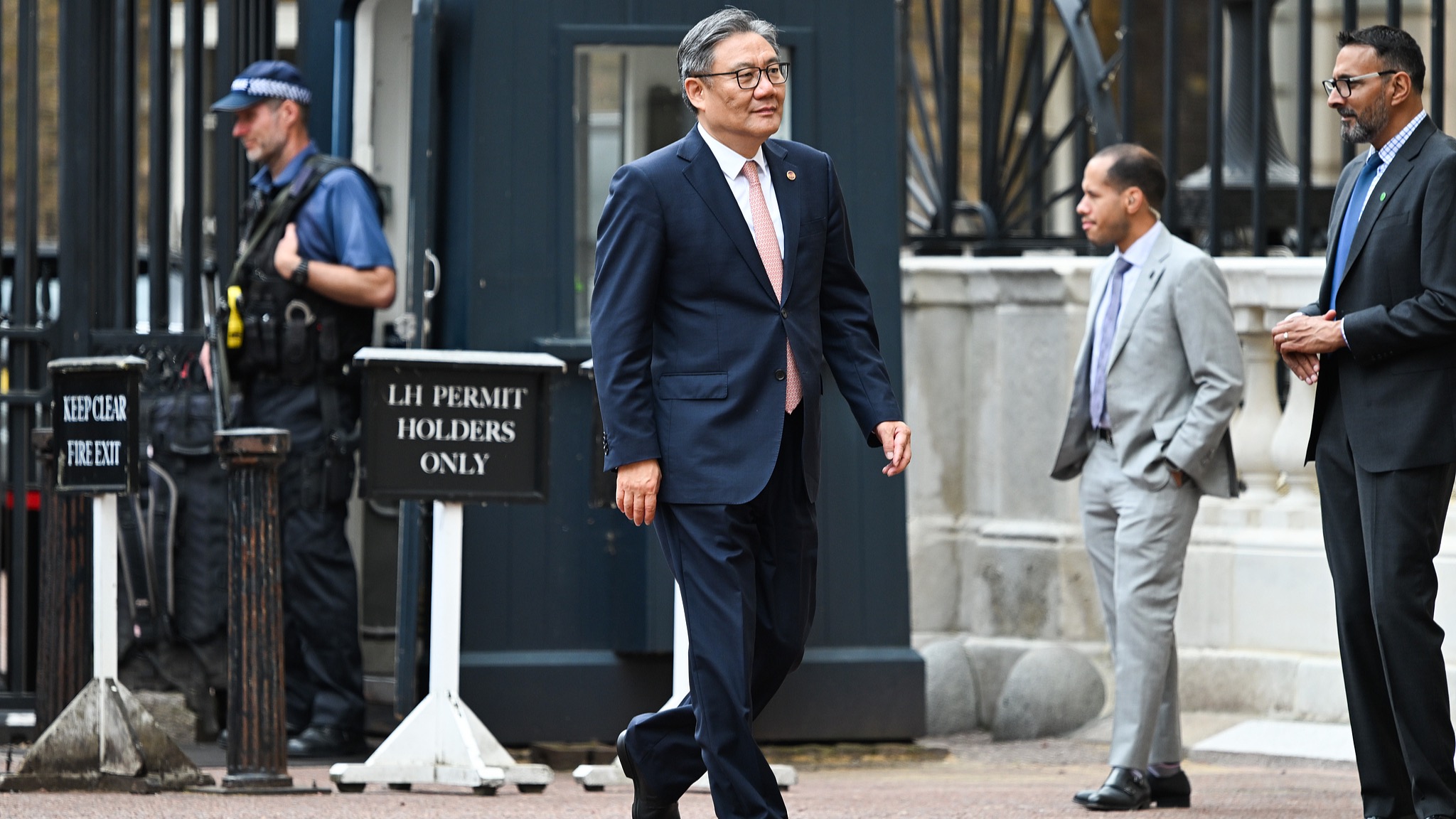Home > > U.S. volatility v. Chinese consistency: Who's a reliable partner in an uncertain world?
U.S. volatility v. Chinese consistency: Who's a reliable partner in an uncertain world?

Chinese Commerce Minister Wang Wentao arrives for trade talks with the U.S. at Lancaster House in London, the UK, June 10, 2025. /CFP
The first meeting of the new China-U.S. economic and trade consultation mechanism concluded in London on June 10 with a principled agreement. The two sides agreed on a framework of measures to implement the consensus achieved during the phone call between the two presidents on June 5. The measures would also consolidate the outcome of the earlier talks in Geneva.
From Geneva to London, the path of trade dialogue has been anything but smooth. During this period, the U.S. introduced a series of discriminatory measures targeting China, which disrupted the fragile momentum built over months. The London meeting, with a new consultation mechanism in place, inevitably touched on sensitive and contentious matters. However, the fact that the two sides could still sit down for a substantive exchange and agree on a general framework sends a positive signal.
It reaffirms a simple truth: Dialogue remains the only rational path forward in a world marked by intensifying rivalry and global instability.
Despite this tentative progress, the European financial markets remain cautious. On June 11, major indices across the continent – excluding the UK – posted slight losses, reflecting continued skepticism among Europe's economic heavyweights over the sustainability of any Sino-American detente.
As an analysis by Beacon Policy Advisers in Washington, D.C. said, "What this agreement doesn't mean is that tensions between the U.S. and China won't continue to flare or that (Donald) Trump is done causing economic uncertainty with the use of his favorite go-to tool, tariffs."
The unpredictability of the U.S. trade policy, often described as erratic, makes medium-term forecasts exceedingly difficult. Even the EU – despite its economic size and longstanding transatlantic alliance – has struggled to secure a consistent dialogue with Washington. European Commission President Ursula von der Leyen, for instance, is still waiting for a White House meeting to negotiate tariff de-escalation, a delay that underscores Europe's diminished leverage in shaping U.S. trade conduct.
In contrast, China projects a more stable and predictable posture. Guided by principles of mutual respect, peaceful coexistence, and mutually beneficial cooperation, Beijing emphasizes policy continuity. On the sensitive issue of rare earth exports – critical to the global tech supply chain – China continues to process applications based on legal and scientific criteria, considering the legitimate civilian needs of other nations. Far from weaponizing its strategic resources, China endorses a cooperative, rules-based approach.
A similar pattern is evident over fentanyl. China maintains one of the world's strictest regulatory frameworks for the opioid and its precursors and works with the U.S. and other nations to suppress its illegal production and trafficking. Beijing consistently emphasizes that fentanyl is a global public health challenge that is best addressed through evidence-based, professional cooperation rather than politicization.
Unfortunately, Washington cites fentanyl as a pretext for further tariffs on Chinese goods – an approach lacking scientific merit and undermining the very cooperation needed to stem the opioid crisis.
In contrast, the EU has engaged China constructively. Since 2021, China and the EU have held an annual high-level, multi-agency dialogue on drug control. This structured mechanism has not only deepened mutual understanding but also become a model of how major powers can jointly tackle global narcotics challenges.
While China-U.S. dynamics drew the media spotlight this week, a parallel diplomatic event occurred in the city of Changsha in central China, where the ministerial coordination meeting for the Forum on China-Africa Cooperation convened. In his congratulatory message, Chinese President Xi Jinping pledged to implement a zero-tariff policy for the 53 African countries with diplomatic ties to China. He also promised additional measures to facilitate exports from Africa's least developed nations.
This move, beyond its economic dimension, reflects China's broader vision of inclusive globalization and solidarity with the Global South – something notably absent from the current U.S. foreign policy discourse.
There is no guarantee that the China-U.S. consultations will bring long-term stability to bilateral trade. Yet China's posture, anchored in strategic patience and international engagement, stands in sharp relief to the volatility seen in Washington's approach. Whether on trade, health cooperation, or developmental partnerships, Beijing has consistently chosen dialogue over confrontation, rules over unilateralism, and inclusion over isolation.
In today's fractured and unpredictable world, the question is no longer about who wields greater economic or military power. It is about who can be trusted to act with consistency, responsibility, and foresight. This is the defining choice facing the international community – and the answer may well shape the global order for decades to come.
(Deng Yingping is a special commentator on current affairs for CGTN.)
CGTN 2025-06-14